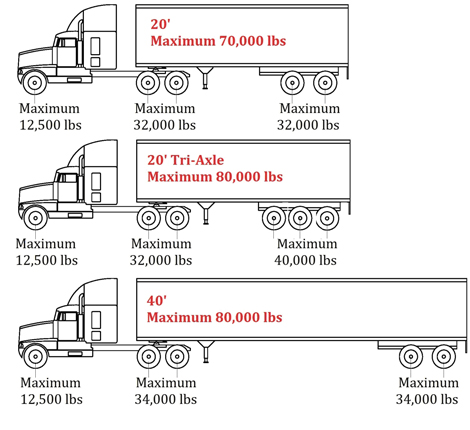Maximum Payload
To prevent the stressing of Federal Highway Bridges, the Federal Bridge Formula uses the spacing of axles on vehicles to help identify the maximum allowable gross vehicle weight. Various factors such as type of cargo, distribution of cargo within the container and different types of equipment (e.g. steel vs. aluminum containers, flush vs. slider chassis, tractor weight/type, gensets for reefer) will affect the determination of an absolute maximum cargo payload.
Due to the variety of variables that factor into the bridge formula calculation, we offer the following recommended guideline for the average maximum container payload weights. NOTE: Strict adherence to reefer weights. Limit of tare weight shown on container may never be exceeded.

